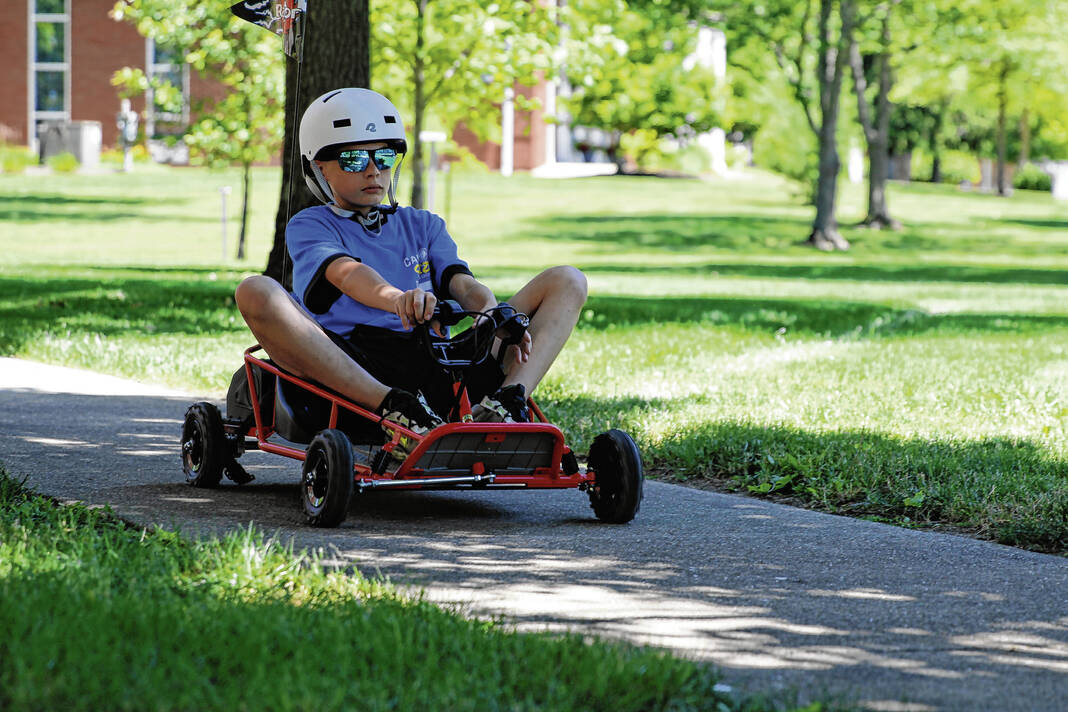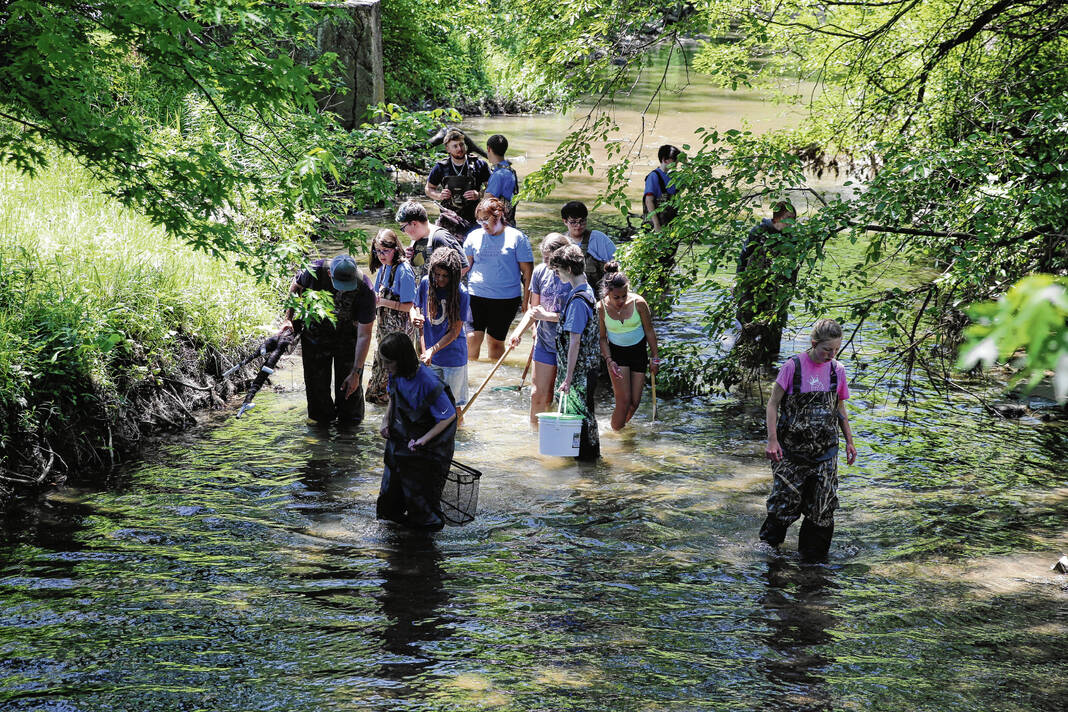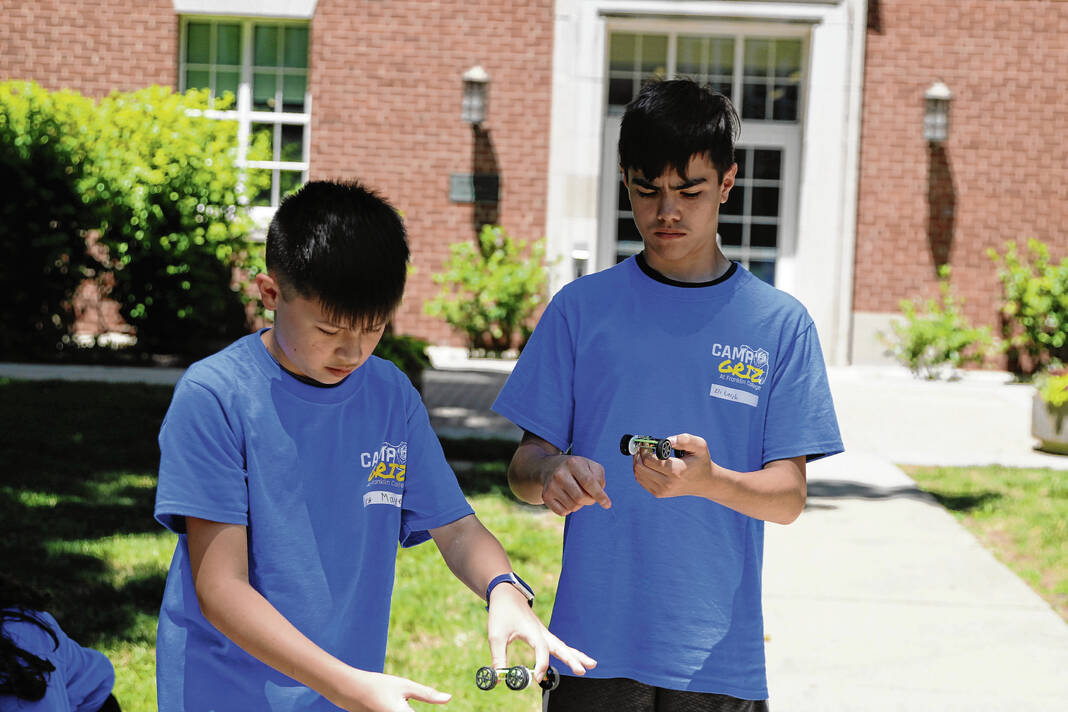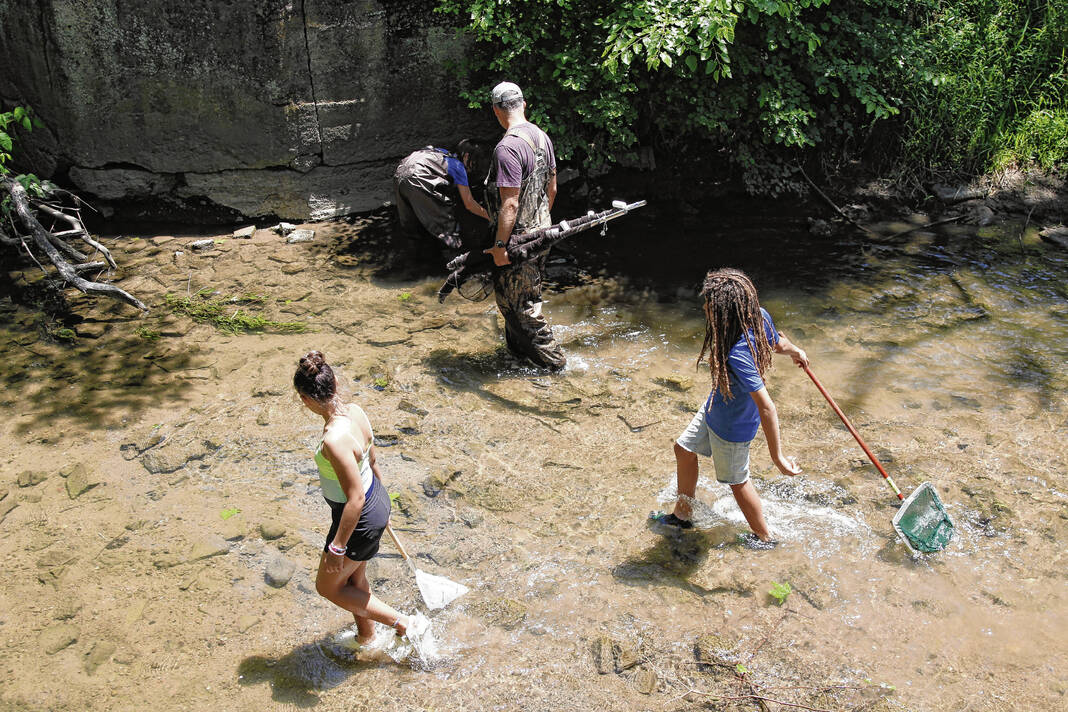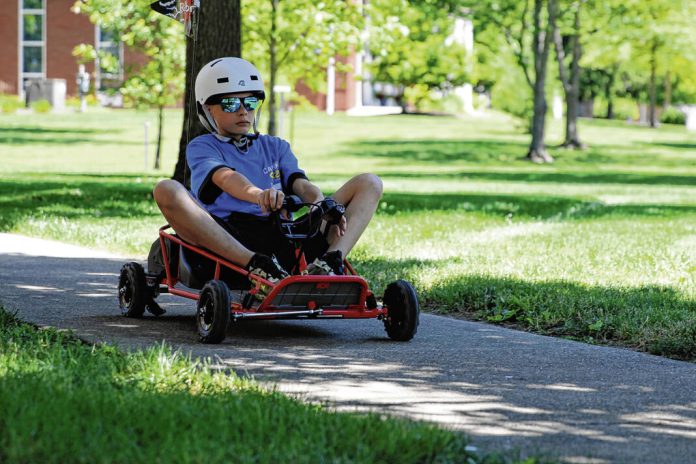
Jackson Terrell, 13, rides an electric-powered go-kart at CampGRIZ on Wednesday. Jayden Kennett | Daily Journal
Middle school students learned more about a sustainable future this week at Franklin College.
Arbin Thapaliya, associate professor of physics, was awarded a $25,000 grant from the Ball Venture Fund to benefit various Franklin College programs. The goal of the grant is to develop a curriculum for middle school, high school and undergraduate students.
One program that is already seeing the benefits of the grant is CampGRIZ, Franklin College’s academic summer camp.
Students entering sixth through ninth grade attended the four-day CampGRIZ this week where campers learned from Franklin College faculty in science, technology, engineering, mathematics and the arts. They also interact with Franklin College students and alumni to gain a real-world perspective on higher education benefits.
CampGRIZ offers five hands-on learning experiences for students and parents to choose from. One hands-on experience is the Catapults and Trebuchets experience where students learn practical applications of physics to construct and operate a real catapult.
The first half of camp focused on the catapults and trebuchets, but because of the newly awarded grant, the class took a detour and spent Wednesday learning about electric vehicles. Students built and drove an electric-powered go-kart as part of the camp lesson. The project provides hands-on learning about the electrification of vehicles, battery technology, solar power and solar charging stations.
The project is still in the early stages of development, but Thapaliya wanted students at this year’s CampGRIZ to get a taste of EV education. As part of the lesson, students built small solar-powered cars. The cars are small rectangular pieces with wheels and a solar-powered battery pack to make them move. The kits were purchased through the grant, but next year they will be able to 3D print all of the materials they need, Thapaliya said.
By combining solar energy and electric vehicle education with problem-solving and creativity, students are being prepared to enter employment sectors. EVs are growing and by the time the students learn to drive, there’s a potential that they will be driving EVs, he said.
The United States has set a goal of having 50% of all new vehicle sales be eclectic by 2030.
“They’re middle schoolers and if they know something about EV, I’d be very happy,” Thapaliya said.
Next year will be even more exciting for students, he said. They will have a much bigger go-kart and have more of an emphasis on EV, he said.
The grant will extend beyond CampGRIZ and will be incorporated into physics coursework and training for K-12 STEM teachers throughout Indiana.


